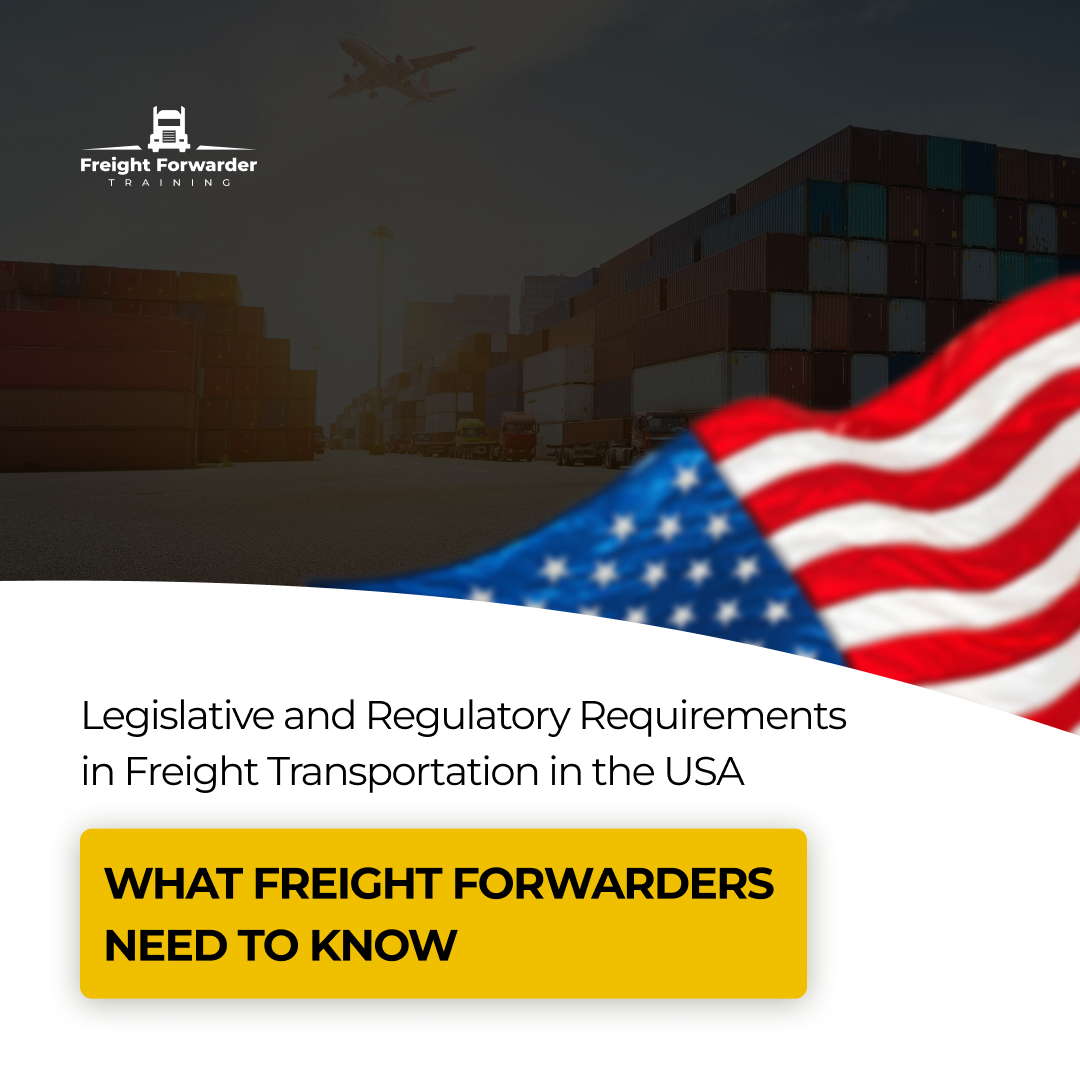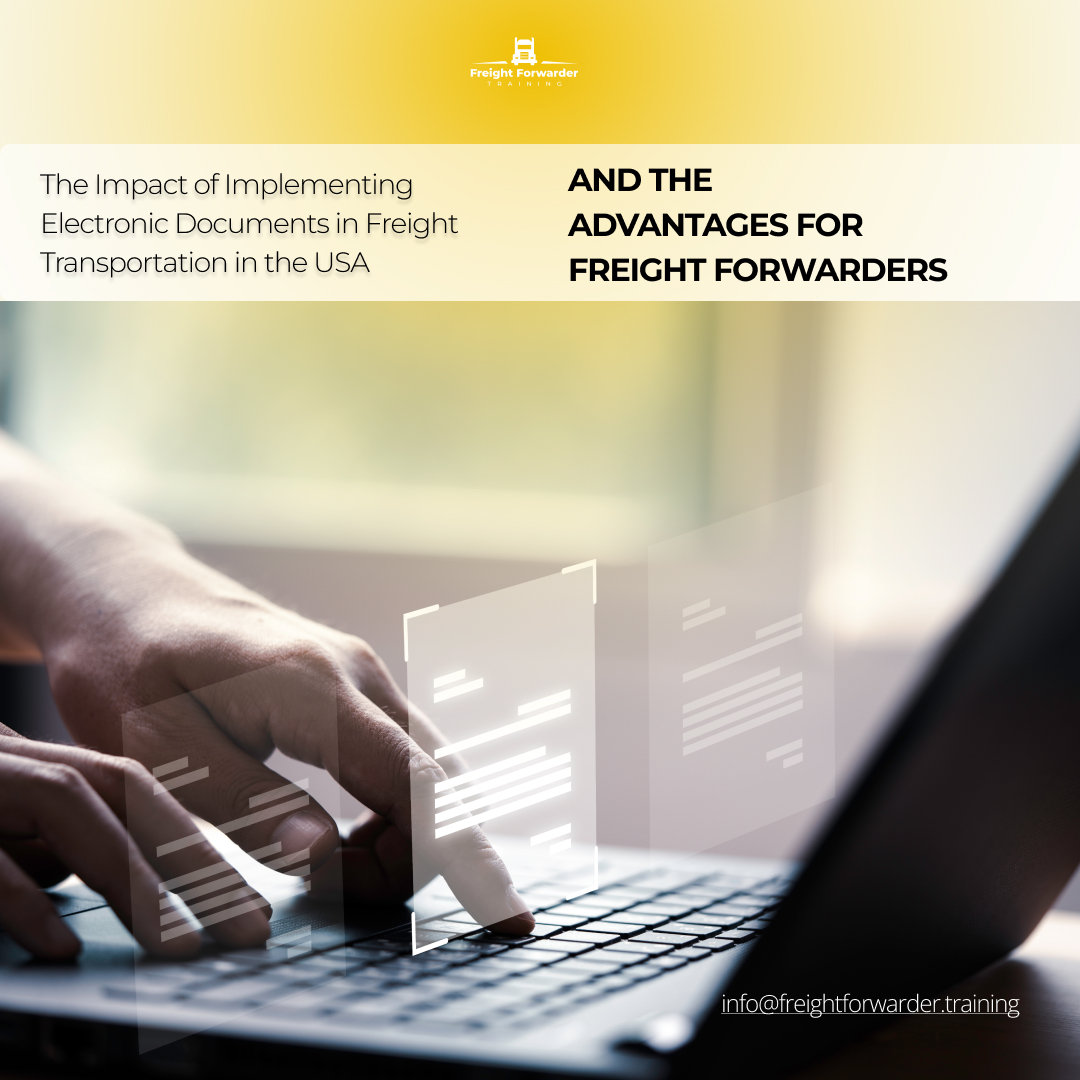Freight transportation in the United States is governed by a complex web of legislative and regulatory requirements aimed at ensuring…

Legislative and Regulatory Requirements in Freight Transportation in the USA: What Freight Forwarders Need to Know
Freight transportation in the United States is governed by a complex web of legislative and regulatory requirements aimed at ensuring the safe and efficient movement of goods across the country. For freight forwarders, understanding and complying with these laws and regulations are essential to avoid penalties, ensure customer satisfaction, and maintain a smooth supply chain. This article will delve into some of the key aspects of the legislative and regulatory landscape in US freight transportation and highlight what freight forwarders should know to navigate this complex industry successfully.
Federal Motor Carrier Safety Administration (FMCSA): The FMCSA plays a crucial role in regulating the trucking industry and ensuring highway safety. Freight forwarders must be aware of the compliance requirements set by FMCSA, such as obtaining the appropriate operating authority, adhering to Hours of Service (HOS) regulations to prevent driver fatigue, and maintaining records related to driver qualifications and vehicle maintenance.
Department of Transportation (DOT) Regulations: The DOT imposes various regulations on carriers and freight forwarders, including requirements for cargo securement, weight limits, and hazardous materials transportation. Understanding and adhering to these regulations are essential to prevent accidents and potential legal liabilities.
Electronic Logging Devices (ELD): The ELD mandate, introduced by FMCSA, requires commercial motor carriers to use electronic logging devices to track drivers’ HOS electronically. Freight forwarders must ensure that the carriers they work with are compliant with this mandate, as non-compliance can lead to severe penalties and disruptions in operations.
International Registration Plan (IRP) and International Fuel Tax Agreement (IFTA):
For freight forwarders involved in interstate or international transportation, the IRP and IFTA are critical. The IRP allows commercial vehicles to operate across state lines, while the IFTA simplifies the reporting and payment of fuel taxes for motor carriers operating in multiple jurisdictions.
Customs and Border Protection (CBP) Regulations: For freight forwarders involved in international shipping, understanding CBP regulations is essential. Compliance with customs laws, import/export restrictions, and proper documentation is vital to facilitate the smooth movement of goods across borders and avoid delays or penalties.
Environmental Regulations: Freight forwarders should also be aware of environmental regulations that impact the transportation industry. Compliance with emissions standards, proper waste disposal, and sustainable practices can help mitigate the industry’s environmental impact.
Licensing and Insurance: Freight forwarders must obtain the necessary licenses and permits to operate legally. Additionally, they should maintain appropriate insurance coverage to protect their business and clients in the event of accidents or damages during transportation.
Contractual Agreements and Liability: Understanding contractual agreements and liabilities is crucial for freight forwarders. Clear and comprehensive contracts with carriers and clients can prevent disputes and ensure everyone involved understands their roles and responsibilities.
Navigating the legislative and regulatory requirements in freight transportation in the USA can be daunting for freight forwarders. However, compliance is non-negotiable to ensure safety, efficiency, and legal operations in the industry. By staying up-to-date with the evolving laws and regulations, maintaining clear communication with carriers and clients, and investing in continuous education and training, freight forwarders can position themselves for success in this dynamic and critical sector of the economy.
Our latest posts
Our latest posts

Legislative and Regulatory Requirements in Freight Transportation in the USA: What Freight Forwarders Need to Know

The Impact of Implementing Electronic Documents in Freight Transportation in the USA and the Advantages for Freight Forwarders
The rapid advancement of technology has revolutionized various industries, and the transportation sector is no exception. In recent years, the…

Development of multimodal cargo transportation in the USA
Multimodal freight transportation plays a crucial role in modern logistics, particularly in the context of trade development and globalization. In…















